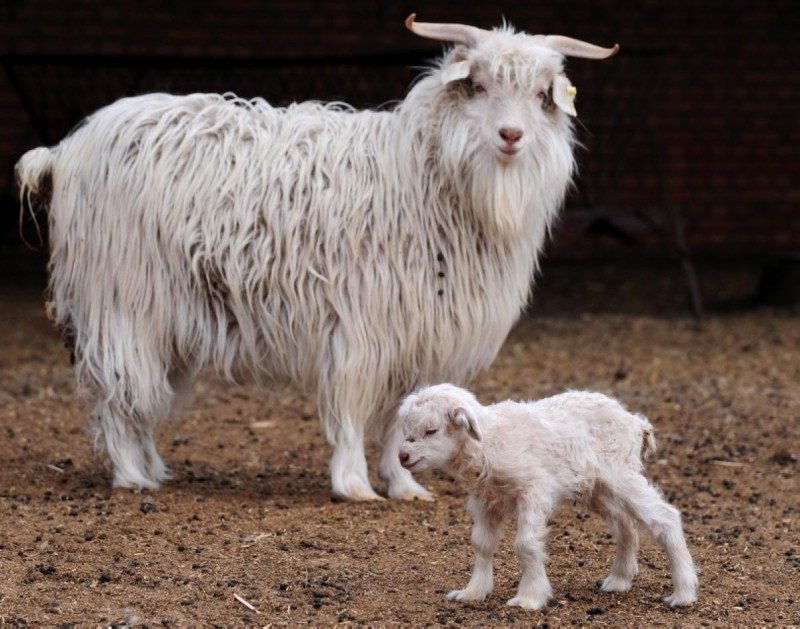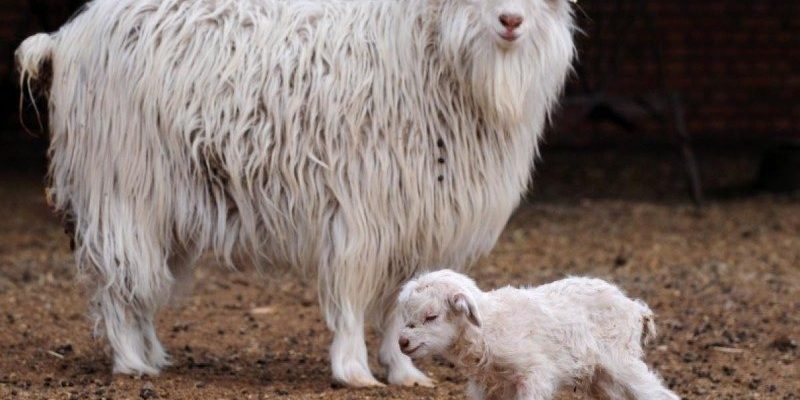
In this article, we’ll explore what makes cashmere goats unique and whether they’d be a good fit for your lifestyle. Whether you’re pondering them as a farm animal or a pet, it’s important to understand their needs, benefits, and even the challenges you might face. So, grab a cup of coffee, and let’s dive in!
What Are Cashmere Goats?
Cashmere goats are a special breed known primarily for their luxurious cashmere wool. Unlike your typical pet goat, these animals are bred specifically for their soft undercoat, which is harvested once a year. They originated in the regions of Mongolia and Tibet, where the chilly climate has helped them develop a thick, insulating coat.
Here’s the thing: cashmere isn’t just any wool. It’s incredibly soft, lighter than sheep’s wool, and also warmer. It’s like wearing a cozy hug! Farmers often collect cashmere during the spring molting period. Think of it as a seasonal shedding, similar to how cats and dogs lose their fur. This requires only a gentle combing and can yield a significant amount of fiber, making them quite valuable.
But are they just for fibers? Not at all! Cashmere goats are friendly and social animals. Their playful demeanor makes them fun companions on a farm or in your backyard. They can even form close bonds with their human caretakers.
Are Cashmere Goats Good Pets?
If you’re thinking about having cashmere goats as pets, there are several factors to consider. First off, they need plenty of space, so a typical backyard might not suffice. Ideally, they thrive in environments where they can roam and graze. If you have a small farm or a larger piece of land, that’s perfect!
Social Animals: Cashmere goats are herd animals, meaning they really prefer the company of their own kind. Keeping a pair is strongly recommended, as they’ll grow happier and healthier together. Picture them prancing around, nuzzling each other. It’s pretty adorable, right?
You might be wondering about their care requirements. Fortunately, cashmere goats are relatively low-maintenance compared to other farm animals. They need shelter from harsh weather, plenty of clean water, and a balanced diet. However, they can fall prey to certain health issues, like parasites or foot rot, which means regular health checks are essential for a happy goat.
Benefits of Raising Cashmere Goats
Raising cashmere goats offers various advantages, especially if you enjoy fiber arts or want to venture into small-scale farming. Here’s why they can be a wonderful addition:
- Quality Fiber: As mentioned earlier, cashmere is incredibly soft and warm. Producing your own is not only rewarding but can also be a thriving business if marketed well.
- Natural Grazers: They help keep your land clear of unwanted vegetation. Their grazing habits can promote healthier soil and a well-kept landscape.
- Companionship: They’re sociable animals that can bring joy to your life. If you enjoy spending time outdoors, having cashmere goats around can be a delightful experience.
- Easy to Feed: They are not picky eaters. They thrive on hay, pasture, and grains, making feeding them manageable for most farm owners.
Ultimately, if you’re looking for a multi-functional animal that can provide companionship and some fluffy cashmere, they’re a solid choice.
Challenges of Owning Cashmere Goats
While the benefits are tempting, it’s essential to understand the challenges too. For starters, cashmere goats can be quite stubborn. Training them requires patience and consistency. Just picture this: you might find yourself engaging in a good-natured battle of wills over who gets to nibble the garden first!
Space Requirements: As I mentioned earlier, they need ample space to roam. If you live in a tiny area with little room to spare, they might not be the best fit for you. Crowded conditions can lead to stress and health issues among goats.
Another consideration is their health management. Regular veterinary care can accumulate costs over time. It’s not just about feeding them; you’ll need to keep an eye on vaccinations, hoof care, and deworming schedules.
Lastly, cashmere goats can be vocal. They communicate often, which might not be suitable for everyone, especially if your neighbors aren’t fans of farm sounds.
Cashmere Goats Vs. Other Goat Breeds
When considering cashmere goats, you might wonder how they stack up against other goat breeds. For instance, dairy goats can provide milk, while meat goats are raised primarily for their meat. Here’s a quick comparison of what makes cashmere goats stand out:
| Type | Primary Use | Temperament |
| Cashmere Goat | Fiber production | Social and playful |
| Dairy Goat | Milk production | More active and vocal |
| Meat Goat | Meat production | Generally more docile |
If you’re focused on fiber and companionship, cashmere goats are superb. However, if you’re looking for a multi-use animal, you might want to explore other breeds.
Deciding whether cashmere goats are right for your farm or as pets boils down to personal preference and lifestyle. They can be wonderful companions with their playful nature and soft wool. However, they also come with responsibilities, requiring time, space, and commitment.
Before you make the leap, consider your living situation, how much time you can dedicate to them, and if you’re ready to embrace the quirks of goat ownership. If you’re all in, these charming creatures could easily become a beloved part of your life, providing fiber and joy for years to come. So, whether you’re dreaming of a cozy cashmere sweater made from your own goats or just love the idea of having some fluffy friends, cashmere goats might just be the perfect match for you.

